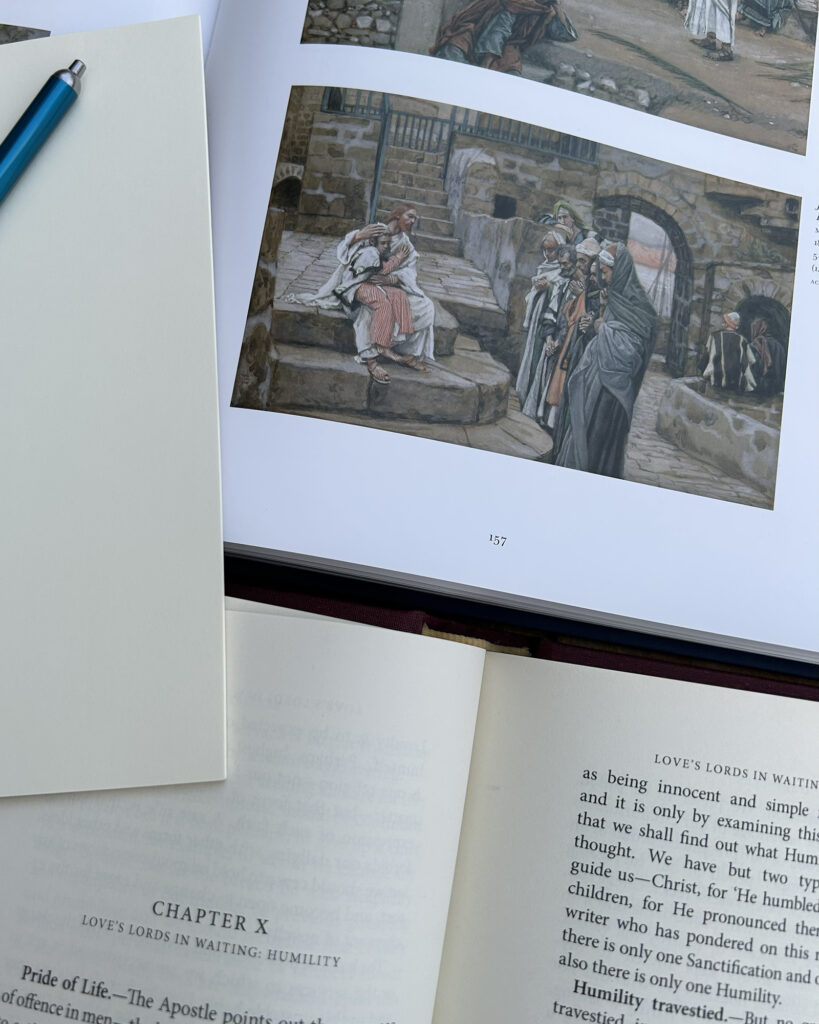CMP Review 2023-08-03
August 3, 2023

In the Idyll Challenge, we are in Book 1 of Ourselves. In the men’s group, one participant brought up the topic of humility, presented in chapter 10. He objected to Charlotte Mason’s assertion on p. 126 that “Humility is born in us all, a Lord of the Bosom, gracious and beautiful, strong to subdue.” He pointed to a contrary tradition of writing on humility from Augustine to the Medieval Doctors and asked whether Mason had read this theological literature.
I replied that I could not say whether Mason read those theologians, but I was certain that Mason’s statement about humility was not incidental. I pointed to chapter 26 of Parents and Children, in which Mason develops the theme that “the note of childhood is, before all things, humility.” I noted that she pointed to the Anglican theologian William Law and his statement that “there never was nor ever will be, but one humility in the whole world, and that is the one humility of Christ.” And that in Ourselves, Mason insists that each of love’s lords in waiting, from courage to humility, has “his dwelling by right in every Mansoul.”
My friend replied that the doctors of tradition said that humility was foreign to the human heart, and could only be born in a person by a fresh and conscious encounter with the glory of God. Our discussion moved from William Law and Augustine to the words of Christ, and whether or not it is true, as Mason claimed, that “our Lord pronounces the little child also to be humble.” On this question hinges Mason’s entire concept of humility — and perhaps even the personhood of the child.
What would you have said if you were in our meeting? Is humility foreign to the human heart and born only by grace, or is humility truly the child’s estate?
@artmiddlekauff